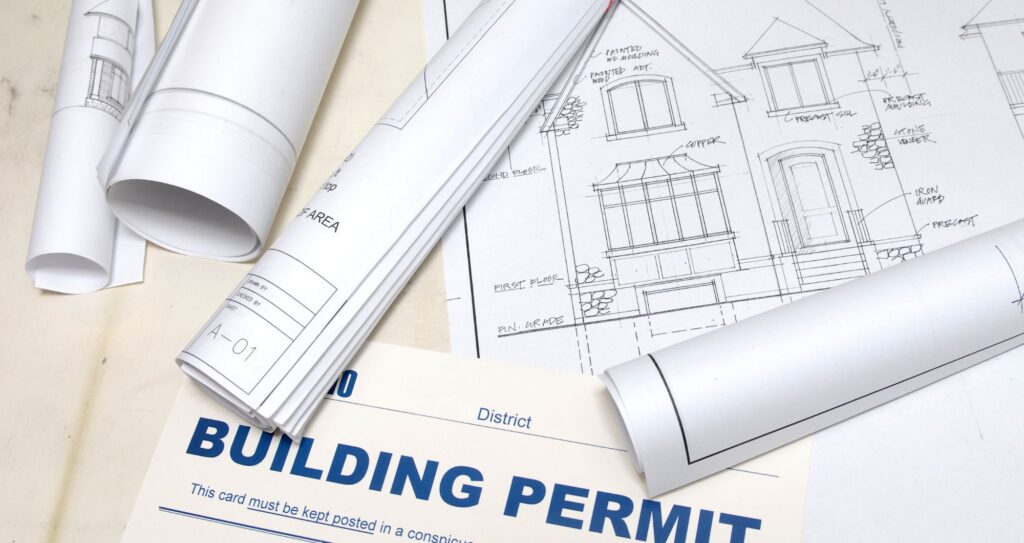Roughly, you can spend between $50,000- $500,000 to start a construction business that can vary with the city, the business size, the kind of services, and the needed equipment. While a small company can start with the necessary tools, licensing, and limited personnel, an enterprise with a large volume of business requires a huge amount of money to be invested in the purchase of heavy machinery, vehicles, and payroll reserves.
Understanding the Basics of Starting a Construction Company
It is necessary to understand what a construction company means before taking the startup costs into account. Simply put, ‘providing labor and equipment’ is the main core of the business; however, it comes with extra features such as licensing, compliance with the code of building, managing finances, and marketing. Most entrepreneurs hire a construction estimating company right after that to get the correct cost projections, which is a smart move as it can help them avoid financial pitfalls.
Business Registration and Licensing Costs
The very first expense will be the formation of a business entity. It may cost between $300 and $1000 to register a limited liability company (LLC), whereas the cost for forming a corporation may depend on the state and be higher. In addition to registration, getting business licenses and permits is necessary for legal operation. The total for initial business registration and licensing usually goes from $1,000 to $3,500.
Construction Contractor License Fees

Contractors’ licenses are required in most U.S.states. The license is the main safety instrument. The cost of a contractor license can vary from $500 to $2,500, with some extra costs for the exams, fingerprinting, and background checks. A renewal fee is most commonly collected every one or two years.
Insurance Expenses
Insurance is protection against accidents, property damage, and employee injuries. General liability insurance usually requires $1,000 to $5,000 a year, while workers’ compensation is based on the number of employees, the risk, and, thus, is $5,000 to $10,000 per annum for small teams. In addition, car and equipment insurance can cost another $2,000 to $5,000 yearly. Without insurance, a single lawsuit could cripple the company.
Bonding Costs
In most cases, contracts are bonded in order to assure the client that they will not be left without the money or the project if the work is not finished or is of poor quality. The cost of a contractor bond is normally from 1% to 3% of the project amount. A $50,000 job might come with $500 to $1,500 as the bond amount. Large companies, however, can have very high annual bonding capacity costs that might be in the tens of thousands of dollars.
Tools and Equipment Purchases
New hardware for start-up companies consists of drills, saws, hammers, safety gear, and ladders, and may cost around $10,000 to $25,000 for a small crew. Heavy equipment such as bulldozers, excavators, and loaders can cost $50,000 to $250,000 apiece. Most new businesses don’t buy but rent instead, which reduces the upfront expenses but gives them a higher monthly operating cost.
Vehicles and Transportation Costs
Work trucks and trailers, coupled with other necessities, are the lifeblood of the on-site staff as they form the backbone of the transportation of tools, materials, and the workers themselves. If talking about new trucks, the price can be anywhere from $40,000 to $70,000, whereas the cost of used trucks is in the range of $15,000 to $30,000. The total transportation investment, including trailers and routine maintenance, ranges from $20,000 to $100,000.
Office Setup and Administrative Costs
Yes, even building and construction companies are in dire need of a well-organized office. In the case of office space rental, the monthly rent is from $500 to $2,000, depending on the city. On the other hand, many startups take a home office initially. Furniture, computers, internet, and office supplies might bring the startup expenses from $5,000 to $10,000.
Construction Estimating and Management Software
In fact, companies in the building and construction sector have geared themselves up with software to bid on projects, and also to keep track of budgets alongside managing their employees. The project management software subscription is from $50 to $300 monthly per user, whereas the annual license for the advanced estimating software is from $2,000 to $10,000. In addition to that, accounting tools like QuickBooks would cost another $600 to $1,200 per year.
Marketing and Branding Costs
To build its image, a company needs branding and advertising. A good website may range between $2,000 and $5,000, whereas logo design and branding packages will be anywhere from $500 to $3,000. Advertising campaigns, including online advertising and local promotion that can add $1,000 to $10,000 annually, depending on the scale.
Employee Hiring and Payroll
Employee hiring on a full-time basis involves the commitment of salaries, benefits, and payroll taxes. The salary of a small team of five skilled workers will come up to around $200,000 a year in wages alone. The addition of accounting software and human resource services can come up with a total of $1,000 to $5,000 per year.
Subcontractor and Labor Costs
Usually, the company or the employees do not do the whole work themselves. In order to complete a construction project, most firms need to utilize various independent tradesmen, for example, plumbers, electricians, or roofers. The costs of subcontractors vary greatly but have to be accounted for in every job. Startups can maintain and even build partnering relationships with contractors at a fraction of the cost of employing specialists in-house.
Legal and Accounting Fees
Legal advice will ease concerns regarding contracts, liability, and compliance. Usually, first consultations may cost from $200 to $500 per hour, while contracts’ drafting might go up to thousands of dollars. An accountant or bookkeeper might take $1,500 to $5,000 annually, depending on how complicated the company’s finances are.
Permits and Regulatory Fees

No matter what a project is, permits are its obligatory parts, and their price can range from $500 to $5,000 depending on the kind and the size of the construction. Furthermore, zoning and environmental compliance are required to add extra money to the total cost. These fees can be dramatically different in cities and states, but one cannot get around them if they intend to operate lawfully.
The safety of employees is a legal and ethical obligation. The cost of OSHA worker certifications is $150 to $300 per worker, whereas the cost of specialized safety training can run into thousands of dollars. In addition, safety companies may also pay for continuous safety workshops, which generally cost between $2,000 and $5,000 per year.
Initial Working Capital and Cash Flow Needs
A construction company may have to pay suppliers and workers before it gets the client’s payment. The possession of $20,000 to $100,000 as working capital will grant the company a trouble-free operation. Without cash reserves, slow withdrawals can stop projects from going further and lower their reputation.
Miscellaneous and Hidden Costs
Unexpected costs occur quite often. These can be vehicle repairs, fuel, utilities, warranty claims, and legal disputes. The organization should at least keep 10% of the budget for emergencies.
Estimating the Total Startup Cost Range
The real amount of money one needs to start a construction company is largely dependent on the company’s size. The following is a rough expense breakdown:
| Company Size | Estimated Startup Cost | Example Setup |
| Small (1–5 employees) | $50,000 – $150,000 | Basic tools, one truck, small office/home office, limited marketing |
| Medium (5–20 employees) | $150,000 – $500,000 | Multiple trucks, rented equipment, a full office, and marketing campaigns |
| Large (20+ employees) | $500,000+ | Heavy equipment purchase, large payroll, commercial office, and ongoing ad campaigns |
Conclusion
Building a construction company from scratch is a daring idea that, however, requires a large sum of money to be spent out of pocket at the very beginning. The costs can be quite varied depending on the size of the business, but it is a must-have that the company be properly planned, insured, and licensed, and it has competent financial management. Collaborating with professionals, utilizing accurate estimating tools, and having available operating cash are decisive steps for establishing a business that can survive the long haul.
FAQs
1. What is the minimum cost to start a small construction company?
A small firm can launch with about $50,000–$75,000 if it keeps expenses low and rents equipment.
2. Do I need a contractor’s license to start?
Yes, most states require it, and costs usually range from $500 to $2,500.
3. Should I buy or rent heavy equipment at the start?
Renting is often more cost-effective for new companies until steady revenue is established.
4. How much should I budget for insurance?
At least $10,000 annually for general liability, workers’ compensation, and vehicle coverage combined.5. Is it possible to start from home?
Yes, many small construction businesses operate from a home office initially to reduce costs.
